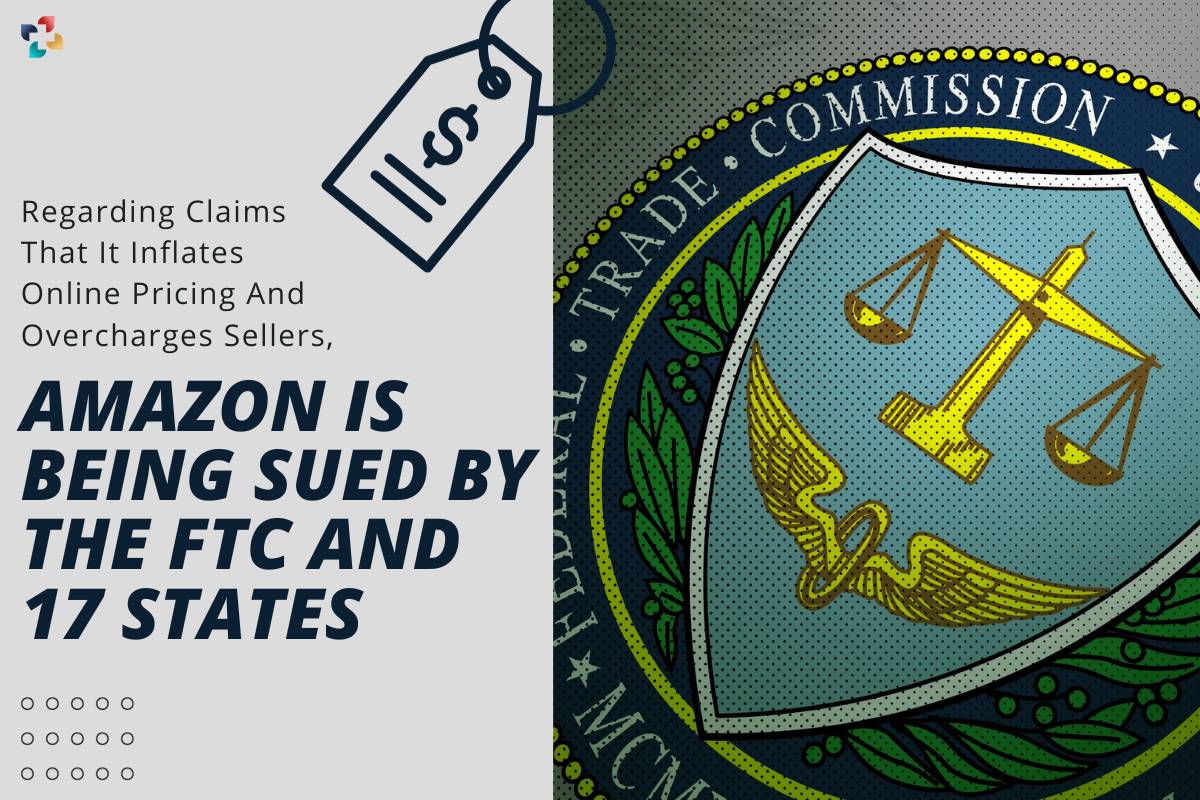The e-commerce giant is accused of abusing its position in the market to raise prices on and off of its platform, overcharge vendors, and hinder competition, according to claims made by Federal Trade Commission and 17 states.
The complaint was initiated against Amazon on Tuesday in federal court in Washington, the state where it is headquartered, and it is the outcome of an extensive investigation into the company’s operations. This is one of the biggest legal obstacles Amazon has faced in its nearly 30-year history.
Amazon is accused of breaking both federal and state antitrust laws, according to the Federal Trade Commission and the states that joined the action. They are requesting that a permanent injunction be issued, which would, in their words, stop Amazon from participating in its illegal behaviour and would allow it to loosen its “monopolistic control to restore competition.”
The complaint makes claims similar to those made in a different lawsuit brought last year by the state of California, accusing the corporation of engaging in anti-competitive practises by taking actions that discourage sellers from offering lower prices for goods on websites other than Amazon.
According to the lawsuit, Amazon hides listings that competing websites are offering for less money. In addition, it levies large fees to sellers, which forces businesses to boost their pricing on Amazon and other e-commerce platforms in order to remain competitive.
Federal Trade Commission Chairman Lina Khan said in a prepared statement: “The complaint sets forth detailed allegations noting how Amazon is now exploiting its monopoly power to enrich itself while raising prices and degrading service for the tens of millions of American families who shop on its platform and the hundreds of thousands of businesses that depend on Amazon to reach them.”
Seattle-based Amazon.com Inc. claimed the Federal Trade Commission was “wrong on the facts and the law” and had strayed from its mandate to safeguard consumers and competition.
According to Amazon General Counsel David Zapolsky, “if the Federal Trade Commission gets its way, the result would be fewer products to choose from, higher prices, slower deliveries for customers, and reduced options for small businesses — the opposite of what antitrust law is designed to do.”
Federal Trade Commission files antitrust lawsuit against Amazon
Amazon is also charged with degrading the customer experience by substituting relevant search results with paid advertisements, favouring its own brands over other goods it is aware are of higher quality, and levying high fees that require sellers to give Amazon nearly half of their total sales. According to the anti-monopoly group Institute for Local Self-Reliance, the percentage of sales that sellers send to Amazon has increased from 19% in 2014 and 35% in 2020.
The lawsuit claims that despite the fact that many sellers would prefer to use different order fulfilment providers to fulfil customers’ orders, Amazon forces sellers to utilise its logistics service, Fulfilment by Amazon, in order for their products to qualify for Amazon Prime.
According to some estimations, Amazon has a 40% market share in e-commerce. Small and medium-sized organisations and individuals that are independent sellers facilitate the majority of the transactions on its platform. Amazon earns billions of dollars through referral fees and other services like advertising, which increases the visibility of the goods sold by merchants on the platform, in exchange for granting access to its platform.
Most third-party merchants additionally utilise the company’s fulfilment service for inventory storage and customer delivery. The move was criticised by the company’s detractors. Amazon has been steadily increasing costs for those who depend on the programme and more recently imposed — and then abandoned — another levy on people who don’t. Amazon recorded $32.3 billion in revenue from third-party services during the most recent quarter.
While a group representing the industry claimed that many large retailers had practises that are similar to Amazon’s, consumer advocacy groups praised the action.
There have been rumours that the agency would attempt to forcibly break up the retail behemoth, which is also a leader in cloud computing and is expanding its footprint in other industries such as food and healthcare. In a press conference, Khan sidestepped inquiries about whether or not that will occur.
“At this point, liability is more important,” she said.
For years, Amazon has been accused of undercutting companies that sell on its platform by analysing merchant data and developing its own rival products, which it then promotes on its website. The business announced in August that it was discontinuing some internal brands that weren’t popular with consumers and will relaunch some products under already popular names like Amazon Basics and Amazon Essentials. The Department of Justice has also been urged by booksellers and authors to look into what they have referred to as Amazon’s “monopoly power over the market for books and ideas.”
The Federal Trade Commission’s Khan, a Big Tech sceptic who rose to fame as a Yale law student in 2017 for her scholarly essay “Amazon’s Antitrust Paradox,” may benefit greatly from a court victory. Because of her prior criticism, Amazon has attempted to have her removed from regulatory investigations of the business in 2021.
Under Khan’s leadership, the Federal Trade Commission has aggressively sought to limit the influence of Big Tech, but it has recently failed in some of the most high-profile cases, including its attempt to stop Microsoft’s acquisition of the video game developer Activision Blizzard and Meta’s acquisition of the virtual reality startup Within Unlimited. The agency is currently involved in a drawn-out legal battle with Facebook parent company Meta over alleged monopolistic behaviour. The market dominance of Google is also being contested in court by the Justice Department.
The District of Columbia has also filed a complaint against Amazon in relation to how it treats independent merchants, in addition to the California lawsuit. A federal judge earlier last year dismissed the lawsuit, and it is currently being appealed.
The federal lawsuit was filed in response to other steps the Federal Trade Commission has taken against Amazon in recent months. The organisation sued the firm in June, claiming that it was using dishonest tactics to sign customers up for Amazon Prime and making it difficult for them to cancel their memberships. Amazon denies the charges.
In late May, the business agreed to settle claims that it had broken a statute protecting the privacy of children and deceived parents about the manner in which data on its well-known voice assistant Alexa was deleted by paying a $25 million civil penalty.








